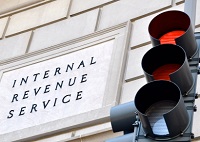Recently the IRS announced that it has made publicly available the data submitted by nonprofit organizations using the short-form 1023-EZ Streamlined Application for Recognition of Exemption Under Section 501(c)(3). This move is part of a continuing effort by the IRS to provide information about the tax-exempt community, which also includes the publication of Form 990 information in electronic form on Amazon Web Services in June of 2016.
When making the announcement about the availability of 1023-EZ data, IRS Commissioner John Koskinen said:
The new online availability of Form 1023-EZ data is an important step forward and will allow taxpayers to more easily research information on tax-exempt organizations. The IRS is committed to ongoing improvements in taxpayer service across the agency and we continue to look for innovative ways like this to provide taxpayers the information they need, when they need it.
Submissions of 1023-EZs from inception in mid-2014 through 2016 are available in a searchable spreadsheet format, and the IRS has announced that the database will be updated quarterly starting next month. Information available on these organizations includes the name of the organization; the organization’s EIN; names of officers, directors and trustees; state of incorporation and organizing documents; and the purpose and activities of the organization. The IRS has approved upwards of 105,000 applications on the 1023-EZ Form since its rollout in 2014.
It is important to note that this information, which is only submitted electronically, is not screened by the IRS before it is published. So taxpayers should be aware that the information submitted on their Form 1023-EZ should not include sensitive taxpayer information such as social security numbers.
Some commentators already have been digging through the application information for 1023-EZ filers, noting areas where taxpayers have been making mistakes. The Taxpayer Advocate Service has noted that 26 percent of approved 1023-EZ applications fail the “organizational test” by lacking required dissolution and exempt purpose language in their organizational document.
In addition, the Nonprofit Law Professors Blog informally surveyed the organizations in the IRS’s 1023-EZ database and found many organizations that are ineligible for filing Form 1023-EZ had been approved, as well. Specifically schools, universities, colleges, private operating foundations, supporting organizations and churches had all been approved—and the problem is not limited to just a few cases. After digging a little deeper, the Blog found that over 500 churches were given approval despite being ineligible for filing Form 1023-EZ. This means that the filers for these organizations, who are required to certify that they had gone through the eligibility worksheet and that their organizations were eligible, had given false attestations (intentionally or not). This is concerning, because organizations that falsely attest to information risk having their exemption revoked retroactively. In addition, it begs the question of how much time taxpayers are taking to familiarize themselves with the complex laws that govern the nonprofit world, if they aren’t even complying with the basic instructions for the Form 1023-EZ.
All of this leads to the question of whether lowering the barriers to entry with the Form 1023-EZ has been a good idea. Are taxpayers benefitted by being able to jump into the tax-exempt world without having to consult with attorneys and accountants who can advise them on the duties and risks associated with running a nonprofit, tax-exempt organization? And is it fair to impose hefty penalties and fines for running afoul of the rules, sometimes years later, on organizations that were able to get their exempt status through this super-simplified process? Perhaps, as some commentators are beginning to suspect, the IRS has streamlined the process too far with the Form 1023-EZ.
One commentator has proposed as a solution to this problem requiring a narrative description of the organization’s activities, like that required by the full Form 1023. This would allow the IRS to independently verify the boxes checked on the Form 1023-EZ and better screen organizations that may not be meeting the requirements of Section 501(c)(3). Further, the Taxpayer Advocate Service has noted that in terms of IRS resources, three pre-determination reviews (for full Form 1023s) can be accomplished in the time it takes to do one post-determination audit. Therefore, catching noncompliance early not only prevents costly consequences to taxpayers and donors, but also saves valuable and limited IRS resources as well (not to mention preventing the damage to the reputation of the entire sector as a whole from having ineligible organizations operating as 501(c)(3)s).
It remains to be seen whether the IRS will address the problems with the Form 1023-EZ, either by requiring a narrative or in some other fashion. However, it is clear that, with the 1023-EZ data so readily available, the exempt organization sector will be paying close attention to any developments.
Schauble Law Group will continue to monitor developments regarding the future of the Form 1023-EZ.


